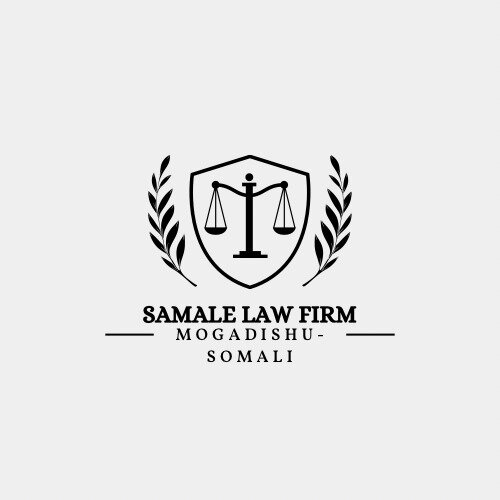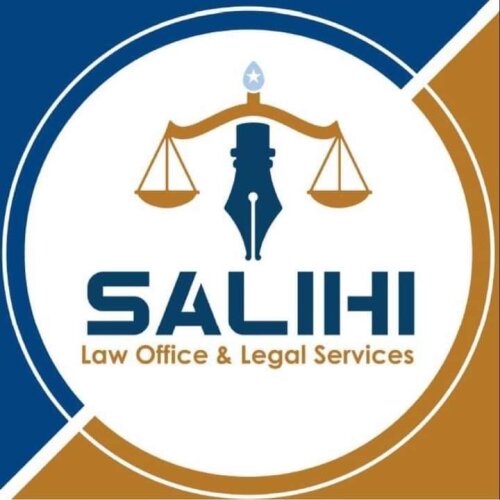Best Energy Regulatory Law Lawyers in Mogadishu
Share your needs with us, get contacted by law firms.
Free. Takes 2 min.
List of the best lawyers in Mogadishu, Somalia
About Energy Regulatory Law in Mogadishu, Somalia
Energy Regulatory Law in Mogadishu, Somalia covers the rules, policies, and legal requirements for the generation, transmission, distribution, and sale of energy. This branch of law includes oversight for both traditional sources like electricity, oil, and gas as well as renewable sources such as solar and wind. Energy law in Somalia aims to regulate competition, pricing, consumer protection, environmental impact, and ensure a stable supply of energy to homes and businesses. In Mogadishu, as the capital and economic center, regulatory frameworks are continually evolving to respond to ongoing development, international investments, and rebuilding efforts following years of conflict.
Why You May Need a Lawyer
People and businesses in Mogadishu might require legal help related to Energy Regulatory Law for various reasons. Common situations include:
- Negotiating contracts for the purchase or sale of energy resources
- Compliance with licensing or permit requirements for energy projects
- Disputes between energy providers and consumers
- Foreign investment in energy infrastructure
- Ensuring safety and environmental standards are met
- Understanding tariffs, taxes, or incentives applicable to energy projects
- Allegations of regulatory non-compliance or illegal operations
- Community relations and compensation for land use involving energy projects
- Adapting to changes in regulations or policies affecting energy operations
- Intellectual property issues related to new technologies or renewable energy solutions
Local Laws Overview
In Mogadishu, Energy Regulatory Law is shaped by both national and city-level policies. Since Somalia is rebuilding its legal and economic systems, the regulatory landscape is dynamic. Some key aspects include:
- The Energy Act (2020) governs much of the country’s energy sector, providing the legal basis for licensing, regulation, and oversight of energy production, distribution, and retail.
- The Ministry of Energy and Water Resources plays a central role in issuing approvals and monitoring energy projects.
- Providers must often comply with rules related to fair pricing, transparency, and access for all citizens, while also meeting technical safety standards.
- Special attention is given to the electrification of urban and rural communities and the encouragement of renewable energy adoption.
- Environmental protection laws require energy operators to assess and mitigate any adverse impacts their projects may have on communities and ecosystems.
- Investors, both local and foreign, often encounter joint venture rules, local content requirements, and new frameworks for public-private partnerships in energy infrastructure.
Frequently Asked Questions
What types of energy projects are regulated in Mogadishu?
All energy projects, including electricity generation (from diesel, hydro, solar, and wind), transmission, and distribution are regulated. Oil and gas extraction and sales are also subject to oversight.
Who is responsible for regulating the energy sector in Mogadishu?
The primary authority is the Ministry of Energy and Water Resources, which enforces regulations, issues licenses, and monitors compliance.
Do I need a license to generate or sell electricity?
Yes, any commercial activity in energy generation or sales typically requires a license from the relevant government body.
Are there incentives for renewable energy projects?
Somalia’s government has outlined incentives to promote renewable energy, including reduced tariffs, tax exemptions, and easier licensing for solar and wind projects.
What happens if I operate without a proper energy license?
Operating without a license can result in fines, closure of the business, and possible criminal liability depending on the circumstances.
How are energy prices regulated?
Prices are semi-regulated. While energy companies can propose tariffs, these must often be approved by regulatory authorities to prevent unfair pricing.
What steps are involved in starting an energy business?
Applicants must register the business, comply with health and safety standards, obtain all necessary licenses, and adhere to environmental regulations.
How are land and community issues addressed in energy projects?
Operators are required to consult with affected communities, assess environmental and social impacts, and provide compensation when necessary.
What should foreign investors know about energy law in Mogadishu?
Foreign investors are encouraged but must comply with joint venture rules, local partner requirements, and all relevant Somali energy laws.
Where can I get help if I have a dispute with an energy provider?
You may approach the Ministry of Energy and Water Resources for mediation or seek legal counsel to pursue courts or arbitration in case of unresolved disputes.
Additional Resources
For further information or support, consider reaching out to:
- Ministry of Energy and Water Resources (Somalia) - Main governmental body for energy regulation
- Mogadishu City Council - For local-level permits and urban energy planning
- Chamber of Commerce and Industry, Mogadishu - Business advice and networking
- Somali Energy Association - Resources for energy professionals and investors
- Legal Aid Clinics - Such as the Somali Bar Association or Somali Legal Aid Project, for advice and dispute resolution
- UNDP and International Development Organizations - For support and guidelines on sustainable and community-based projects
Next Steps
If you require legal assistance in Energy Regulatory Law in Mogadishu, Somalia, consider the following steps:
- Identify the specific nature of your issue or project (licensing, compliance, dispute, investment, environmental, etc)
- Gather all relevant documents including contracts, permits, and correspondence
- Contact a qualified legal professional who specializes in energy law or regulatory matters in Somalia
- Consult with relevant governmental bodies to clarify processes or requirements
- Consider mediation or negotiation before resorting to formal litigation for dispute resolution
- If unsure where to start, start with a legal aid clinic or the Ministry of Energy and Water Resources for initial guidance
Always ensure your legal representation is familiar with both the national and local regulatory frameworks to help you navigate your Energy Regulatory Law concerns effectively.
Lawzana helps you find the best lawyers and law firms in Mogadishu through a curated and pre-screened list of qualified legal professionals. Our platform offers rankings and detailed profiles of attorneys and law firms, allowing you to compare based on practice areas, including Energy Regulatory Law, experience, and client feedback.
Each profile includes a description of the firm's areas of practice, client reviews, team members and partners, year of establishment, spoken languages, office locations, contact information, social media presence, and any published articles or resources. Most firms on our platform speak English and are experienced in both local and international legal matters.
Get a quote from top-rated law firms in Mogadishu, Somalia — quickly, securely, and without unnecessary hassle.
Disclaimer:
The information provided on this page is for general informational purposes only and does not constitute legal advice. While we strive to ensure the accuracy and relevance of the content, legal information may change over time, and interpretations of the law can vary. You should always consult with a qualified legal professional for advice specific to your situation.
We disclaim all liability for actions taken or not taken based on the content of this page. If you believe any information is incorrect or outdated, please contact us, and we will review and update it where appropriate.










